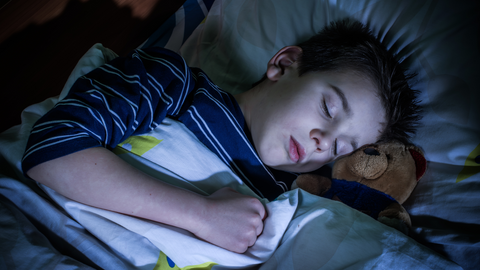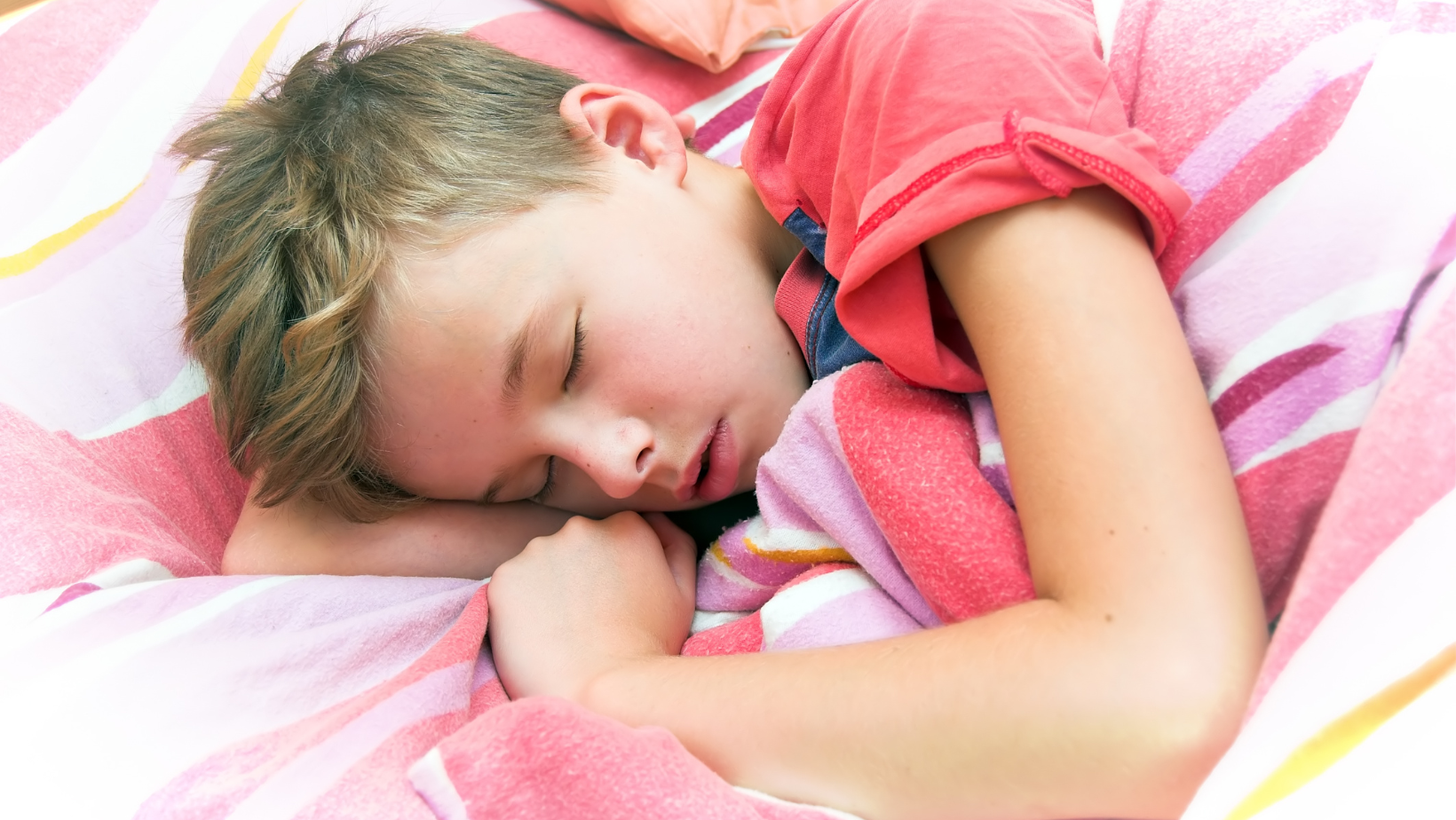Understanding a child's sleep patterns and habits, especially for active children, is important for their overall well-being and development. We teamed up with sleep expert, Dave Gibson, to ask him some questions and gather advice on establishing good sleep patterns for our children.
Dave Gibson is a wellness coach and author of The Sleepsite. His wellbeing tips and advice have been featured in the Telegraph, Independent, Daily Mail, and Daily Express, Sun, Mirror, as well as the home pages of Yahoo and Mums.net and a host of other media. He also regularly features on BBC Radio and he also worked on BBC’s Strictly Come Dancing as their Osteopath.
Question 1: How many hours of sleep should a child typically get at night by age
Answer:
Typically, the recommendations are;
Ages 5-7 = 10-11 hours
Ages 8-10 = 9-10 hours
Ages 11-13 = 8-9 hours
Over 14 = 8-9 hours
All children are different in terms of their genetics which can determine our sleep. The result of a great night’s sleep is when we wake up fully restored and refreshed both physically and emotionally. It is always best to keep your focus on how your child is feeling and respond accordingly. Also, lifestyle factors such as coping with stress, and physical exercise can also affect your child’s sleep patterns and needs, and need to be taken into consideration. One question to ask your child is how do they feel physically and emotionally when they wake up if you aren’t sure they are getting enough sleep then adjust routines.
Question 2: How important is a consistent bedtime and wake-up time during the school week and on weekends?
Answer:
Consistency is king with regards to sleep. It increases both the amount of sleep we get and the quality of sleep we get and makes it easier to both get to sleep and stay asleep. Ideally this consistency should be maintained 7 days a week. Therefore late night treats at weekends can be counterproductive to the whole week.
Question 3: What makes a good bedtime routine?
Answer:
Again, the basics of a routine is consistency. Keeping to a routine means that we anticipate the next step in the sequence. They act as conditioning. So, by having a routine for a baby who doesn’t understand the concept of time we are setting up their brain and body that sleep is coming. A ritual to wind down and taking a break from tech is a core step for kids these days. Something to get them out of their mind and into their bodies such as a hobby or activity could work too. I always think a warm bath is a great part of any bedtime routine as it is both relaxing when we are in it and then the body temperature cools down after. This drop in our core body temperature mimics the natural fall in body temperature we experience as one of our physiological cues for sleep. Basically, we are designed that as our core body temperature cools down our body knows it’s time for sleep. Scientists think that this hard-wiring of our genetics (that we sleep as things get cooler) would have been a response to our cooling night-time environment and enables us to both restore our body overnight and preserve additional energy at the same time.

Question 4: Are there any specific activities or rituals that should help a child wind down before bedtime?
Answer:
Keeping to a routine is key, baths are great but these days our brains are more active in the day, stimulated by tech, than ever before. So maintain clear cut times for tech. Yes this means no phones in anyone’s room overnight as a family boundary (for parents too!) which makes it easier to enforce. This coupled with some sort of mindfulness or meditation or relaxation technique would be great.
Question 5: What is a common sleep mistake many parents make?
Answer:
Many parents use staying up late as a ‘special treat’ to reward good behaviour. Essentially this is giving sleep deprivation to reinforce something positive. We wouldn’t train a dog this way, by rewarding good behaviour with something detrimental. Therefore I would advise parents to be more creative and not to allow children to spend extra time on technology or to break healthy boundaries on bedtimes as their ‘reward’. Instead think about reinforcing a recognition system with something you’d like; such as going out for a day in the country together, or playing a board game as a family or eating a healthy meal at their favourite restaurant.
Question 6: If a child engages in physical activity or exercise regularly, does it impact their sleep patterns and needs?
Answer:
Exercise increases our need for sleep. Typically, elite athletes sleep a lot longer. This is because we need more of a stage of sleep called Deep Sleep, which is when the body is restored. As a result, our total sleep need is increased. Another benefit of exercise is that it enables us to fall asleep quicker and increases our sleep quality. However, if a child exercises too close to sleep it can keep them awake due to the increase in body temperature and the release of cortisol as a direct result of exercise which can then keep us more alert.
Question 7: What should you do if a child regularly wakes up during the night?
Answer:
If a child wakes regularly it’s best to do a bit of detective work to find out firstly whether this is physical, such as a poor mattress or pillow or being too cold or hot, or emotional such as stress at school. Then look at removing the cause.
Question 8: How does using electronic devices impact sleep and what can be done?
Answer:
Tech can affect sleep by emitting blue light, causing sleep displacement (when we stay on tech longer than planned) and stress when it’s use of social media which causes FOMO once stopped. The blue light from tech screens (which stops Melatonin our ‘sleep hormone from being released’) can be blocked with blue light filters. The displacement of time can be stopped by setting clear boundaries with alarms to get off tech. Then the stress and FOMO need some sort of mental wind down space to get out of the mind and into the body.
Question 9: Are there any environmental factors (e.g., noise, light, temperature) that can affect your child's sleep quality or duration?
Answer:
All these environmental factors will affect quality and quantity of sleep. A bedroom should be cool, dark and quiet like a cave.
Question 10: How can parents help establish good sleep patterns?
Answer:
The right exercise, food, sleep, rest and learning healthy boundaries are taught by example. So parents need to model the behaviour they want their children to copy.
Question 11: Is there a correlation between sleep quality and athletic performance?
Answer:
There is massive correlation between the two both in performance, reduction in injury and recovery from injury. Mentally there’s an increase in focus and concentration and co-ordination and physically there’s the increase in power and recovery.
Question 12: Do teenagers really need more sleep than tweens?
Answer:
It depends on the individual circumstances so in some cases yes, but in most cases the older children get, the less sleep quantity they need. The biggest single change outside of this for teenagers is that there is a hormonal shift in their circadian rhythm to a later bed and wake time, which is very hard for them to accommodate with their school start times. This then leads to a weekend catch up of lost sleep.
Tweens aged 8-12 generally require 9-10 hours of sleep and it’s suggested that 13–18-year-olds need 8-9 hours.
Question 13: If you could give one piece of sleep advice to parents, what would it be?
Answer:
The main advice is to set the example you want your children to adopt by prioritising your own sleep and your own mental and physical wellbeing. Good sleep for the whole family makes it easier for all with healthy boundaries around tech use both during the day, at weekends, at rest, and especially in the evening - a key building block of our mental and physical health in our constantly switched on 24/7 world.
In terms of wellbeing, Dave believes that a good night’s sleep is the fundamental pillar of physical, mental, and emotional health. It affects how we feel, how we behave, and our ability to perform, whatever the age. Understanding how to manage stress, keeping a balance on healthy foods to eat, and maintaining exercise goals all become easier after a good night’s sleep.
If you’d like more information and tips, visit www.thesleepsite.co.uk or follow Dave on Instagram @davegibsonwellness or connect via LinkedIn


0 comments